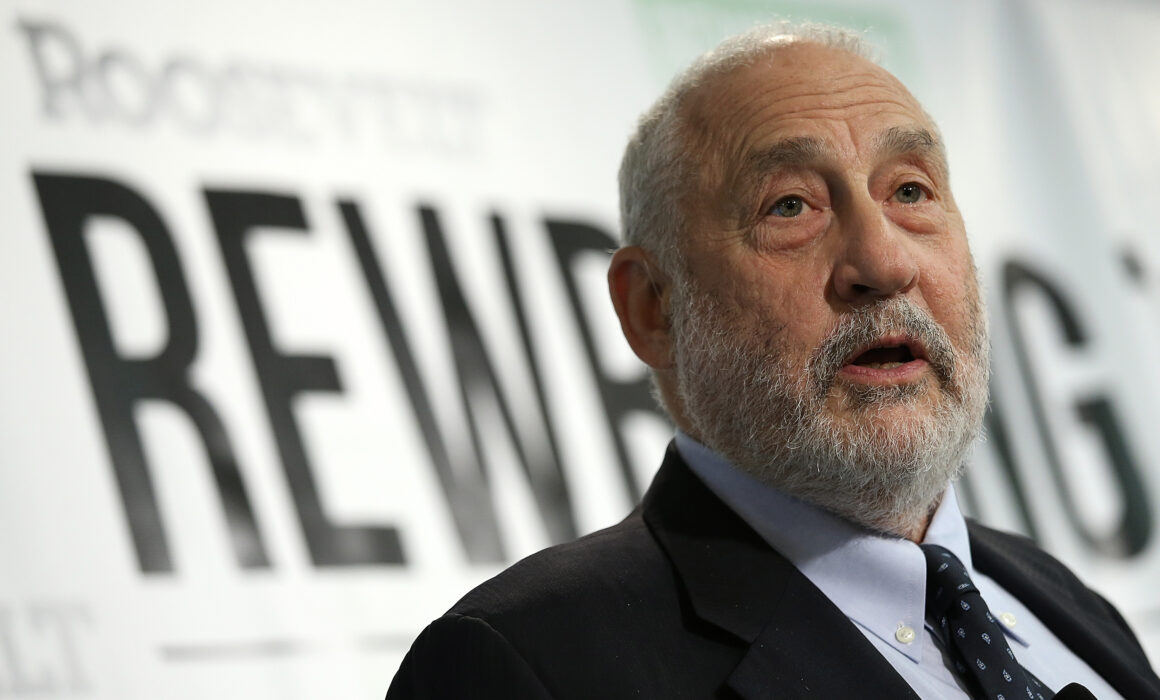What Joseph Stiglitz Thinks a Post-Neoliberal Economy Needs
August 9, 2024
Rewriting the economic paradigm means rebalancing power.
The Roosevelt Rundown features our top stories of the week.

(Photo by Win McNamee/Getty Images)
Building a Post-Neoliberal, Democratic Economy
After decades of empirical evidence, policymakers are confident about neoliberalism’s economic failures: harsh inequality, corporate concentration, and slow growth, to name just a few. As Roosevelt’s Chief Economist Joseph Stiglitz writes, they’re also warping our democracy and creating power imbalances throughout society—providing “a fertile field for authoritarianism and illiberal ideas.” In a new working paper, Stiglitz reflects on how to build a post-neoliberal economy that supports, not undermines, a thriving democracy.
“Neoliberalism is not really a program based on economic theory; it is a political agenda,” Stiglitz writes. Its harsh philosophy of individualism has fostered despair and alienation, polarization, short life expectancies, and environmental degradation, he explains, and—as Roosevelt has further explored in our recent report The Cultural Contradictions of Neoliberalism—the Right has harnessed these negative impacts to push a reactionary agenda.
Rebuilding from neoliberalism’s economic and political devastation requires rewriting the policy rules to promote competition in markets, tax the wealthy, empower worker unions, and strengthen government capacity. It also requires abandoning the conventional wisdom that markets should be the default institutional arrangement. As Stiglitz argues, “This is especially the case in certain sectors—education, health, caring for the aged, and more broadly, the growing ‘care’ part of our economy.”
The paradigm shift away from neoliberalism is about more than just economic efficiency. “Our socioeconomic system shapes who we are and affects what kind of society we create,” Stiglitz writes. “We have to ask, what kind of people and what kind of society do we want?”
Read more in “How Neoliberalism Failed, and What a Better Society Could Look Like.”
Getting Financial Reform on the Progressive Agenda
An impressive policy agenda has entered the mainstream over the past few years, signaling a clear shift away from neoliberalism by centering labor power and public-led industrial strategy. But one piece of that post-neoliberal puzzle has yet to see the same spotlight: financial regulation. In a new brief, Roosevelt Fellow Graham Steele, who previously served as assistant secretary for financial institutions at the Treasury Department, outlines a framework for regulating banks and other financial companies in service of a more democratic and equitable financial system.
The legacy of Trump administration deregulation and the 2022 banking crisis, the uncertainty of a new digital financial ecosystem, and unfinished business from the 2008 recession all pose a risk to a safe, stable, and healthy financial sector. These crises can “devastate communities,” writes Steele, “by causing millions of bankruptcies, foreclosures, and job and income losses—particularly for low-income communities and communities of color.”
The far-reaching effects of transformations in the financial sector remind us not to deprioritize financial reform, which is necessary for solving intersecting policy challenges.
“Making the financial system fairer and less extractive will also help advance other economic policies that rely on the capital and services provided by the financial sector,” writes Steele, “including climate policy, financial inclusion policy, industrial policy, and antitrust policy.”
Read more in “The End of Banking History? Finishing the Unfinished Business of Financial Reform.”
What We’re Talking About
🎊Today, we announce some additions to our 2024 cohort of think tank fellows!
We welcome 2 new senior fellows and 5 new program fellows who will enrich the progressive policy community with a breadth of voices and expertise.
Meet the new Roosevelters ⬇️https://t.co/dv9sfGbZHG
— Roosevelt Institute (@rooseveltinst) August 7, 2024
What We’re Reading
This Labor Data Trend Is a ‘Warning Sign,’ Economist Says. Here’s Why – feat. Roosevelt’s Alí R. Bustamante – CNBC
Google Is an Illegal Monopoly, Federal Court Rules – Washington Post
Will Panic on Wall Street Convince Jerome Powell to Do His Job? – The American Prospect